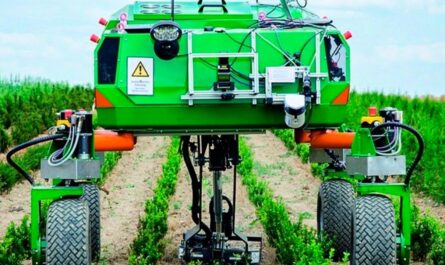With the rapid advancements in technologies, the manufacturing industries are exploring innovative ways to maximize productivity and minimize costs. Advanced process control software has emerged as one of the most effective solutions for automation and optimization of manufacturing processes. This software uses analytical techniques like modeling, predictive analysis and machine learning to gain insights from plant data and automate decision making.
Advanced process control (APC) software utilizes modern control techniques like multivariable predictive control, model predictive control and dynamic matrix control to enhance the basic process control systems. These software solutions utilize real-time optimization algorithms, process models and historical data to analyze complex manufacturing processes. The key features of advanced process control software include:
– Automated loop tuning: It automatically tunes control loops for optimal performance across changing process conditions.
– Predictive control: It uses process models to predict future plant behavior and calculates optimal target values to minimize errors.
– Adaptive modeling: It develops accurate process models automatically by continuous learning from plant data using machine learning techniques.
– Multivariable control: It controls multiple process variables simultaneously to optimize interactions between controls loops.
– Real-time optimization: It continuously computes optimal targets considering process constraints to maximize productivity.
– Integrated simulation: It allows testing of control strategies on virtual process models before deployment on actual plants.
Benefits of Implementing Advanced Process Control Software
With advanced control capabilities, Advanced Process Control Software helps manufacturing plants achieve significant improvements in process performance, product quality and operational efficiency. Some of the major benefits include:
Improved Yield: Precise multivariable control maintains critical process variables within tight specifications leading to higher product yields. Studies show 2-5% increase in yields with APC.
Enhanced Uptime: Adaptive modeling and predictive alarms help avoid process disruptions and enable continuous smooth operations. This improves plant uptime and reliability.
Maximized Throughput: Real-time optimization continuously guides the plant to maximum production rates while respecting all constraints. Some plants witness 10-15% increase in throughput.
Reduced Energy Usage: Accurate process control trim unnecessary overshoots/undershoots saving energy. Optimization finds best paths consuming least utilities. Energy costs can dip up to 10%.
Minimized Variability: Robust model-based control effectively reduces variability in quality metrics like density, viscosity etc. ensuring consistent product quality.
Lowered Operator Workload: Self-tuning and automated decision making take over numerous operator tasks reducing manual efforts and enabling remote operations.
Quantifiable Benefits of APC Software Implementation
Let us look at some actual case studies demonstrating quantified benefits delivered by advanced process control software:
– A desalination plant reported 4.5% increase in fresh water production and 6.8% reduction in energy consumption after deploying APC.
– An integrated steel plant increased annualized profit by $3.4 million controlling its coke oven gas pressure system using advanced control strategies.
– A refinery project optimized its hydrocracking unit models resulting in 2.5% yield gain valued at $8 million per year and reduced energy consumption by $4 million.
– Model predictive control of a power plant boiler minimized fluctuations improving steam temperature control and enhancing unit efficiency. This generated additional $1.5 million annually.
– A chemicals manufacturer centralized advanced control of three polymerization reactors coordinating interlinked process loops. This led to 10% higher production rate.
Choosing the Right APC Software Solution
With numerous software offerings in the market, selecting the most suitable advanced process control system is crucial for realizing optimal benefits. Key factors to consider include the following:
– Process industry and unit or units to be controlled
– Control challenges, constraints and optimization needs
– Nature of manufacturing process (batch, continuous, hybrid)
– Existing control infrastructure and integration requirements
– Vendor experience, reliability, product roadmap and support
– Licensing, scalability and upgrade options
– Customization, configuration and reporting capabilities
– Resource requirements, costs and anticipated returns on investment
Advanced process control software is widely recognized as a compelling strategy to strengthen production processes. With careful selection and deployment, manufacturers across segments continue leveraging APC to take plant performance and profits to new heights.
*Note:
1. Source: Coherent Market Insights, Public sources, Desk research
2. We have leveraged AI tools to mine information and compile it




